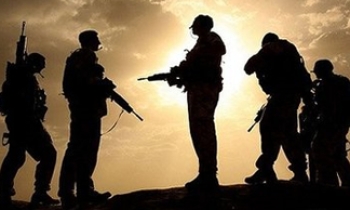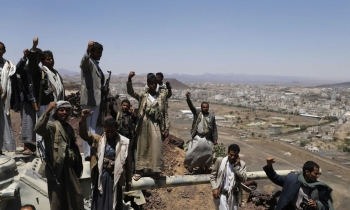The relief I felt reading the paper Wednesday morning, with a headline assuring me the miners in West Virginia were safe, evaporated when I reached the newsroom and learned the truth: All but one were dead. The Star Tribune -- along with many other newspapers -- had a story at the top of the front page that was utterly inaccurate.
Forty-one readers who felt similarly let down called or e-mailed me with unusually sharp criticism of the newspaper for this. As I tried to explain all the circumstances contributing to the dreadful error, it became clear that was irrelevant to these readers. They trusted us and we let them down.
"Take responsibility for your own actions. Put a sign over every writer's and editor's desk: 'How do I know this story is true?' " wrote Janet Brown, a technical writer in Plymouth.
"Readers get the impression that an actual eyewitness account of 'miners surfacing after being underground in the cold, damp chamber for 41 hours' is factual when in fact this couldn't have been further from the truth. Are reporters today all screenwriters or novelists in training?" asked Amy Rubins, a hotel meeting director from St. Louis Park, after reading the Washington Post story used by the Star Tribune.
I've gone back over the bulletins and stories that came over the wires that night, trying to decide what I would have done if I had been the wire editor or reporter. Whether you view the newspaper as a victim of bad timing or a perpetrator of careless journalism, it's an exercise that reveals much about how this could have happened.
Picture yourself as a reporter in West Virginia late Tuesday night, camped out in a little church near the mine with distraught families.
Suddenly, the air is electric with rejoicing. The families are saying rescue workers have called their cell phones and all but one of the miners are alive. Church bells start ringing and Gov. Joe Manchin of West Virginia leaves giving a thumbs up and talking about a miracle happening. Soon Manchin, two other state officials and a congresswoman confirm that the miners are safe.
It's almost 11 p.m. here -- nearly midnight in West Virginia. In Minneapolis, presses started churning out early editions at 10:35 p.m. and the final press run will start about 12:30 a.m. Is the story solid enough to file? Coal company officials refuse to confirm anything, but they raise no note of caution, either.
Each minute that you don't file a story, thousands more newspapers are being printed around the country, reporting that no one knows the fate of the miners. It will be 24 hours before there's another chance to update the printed newspaper. What should you do?
Wire service reporters decided they had enough sources. In Minneapolis, an Associated Press news alert came over the wire at 10:52 p.m. Editors ripped up the front page to get the good news in as many newspapers as possible.
An hour passed and no one raised any doubts about the story. In Minneapolis, it neared 12:30 a.m., and the final edition was on the presses. The Star Tribune's wire editors put on their coats and went home. Online editor Stan Schmidt usually leaves then too, but he stayed to work on technical issues.
At 1:57 a.m., a stunning AP news alert came across the wire: The families said they'd now been told all but one of the miners were dead.
Schmidt immediately updated startribune.com. But it was at this point that the Star Tribune stumbled badly. Although a couple of employees in the building and a couple more newsroom employees who had gone home and turned on the news realized the story had changed, no one called top editors at home to ask if they wanted to stop the presses and remake the paper. Managing editor Scott Gillespie wishes he had gotten that call and said he would have stopped the presses to get it right in whatever was left of the press run. The Duluth News-Tribune's editor got the call, stopped its presses and managed to correct half of the papers. At the Pioneer Press in St. Paul, the story was not corrected. Even some West Coast newspapers that had two additional hours didn't manage to correct it.
So where were the Star Tribune's missteps in all of this? I have to admit, if I had been the wire editor and read the initial story of the miners being safe, quoting sources from a governor to a congresswoman, I would have published it too.
Reader Michael Cowell, an insurance consultant from Mound, said the refusal of the mining company to confirm the successful rescue for three hours should have raised red flags. "You needed to find out where the governor got his information," Cowell wrote. "Call me old-fashioned at age 33, but I believe that it is better to be late with a correct story than timely with a wrong one." Even though the Star Tribune had no one on the scene and was relying on the wires for this story, Cowell wanted editors to have a reporter in Minneapolis call down to West Virginia looking for confirmation. My experience as a reporter and editor tells me that would have been futile. Sources in West Virginia were surrounded by national media and weren't going to put any priority in returning a phone call to a reporter in Minnesota.
Cowell also wanted an apology from editors and assurances that safeguards were being put in place for the future.
"I feel lousy that the incorrect story landed on the doorsteps of more than 300,000 readers. It's the worst feeling a managing editor can have," said Gillespie. He has been analyzing overnight staffing to make sure that between the newsroom and online staffs, someone will be monitoring the news all night, seven days a week. Right now, there are two nights -- Tuesday and Wednesday -- when there is a gap in staffing for a few hours late at night. Gillespie also is reviewing protocol with the staff for calling top editors late at night when news breaks. He feels proud about the newsroom's late-night response in recent years to some big stories -- such as the capture of Saddam Hussein -- and is extremely disappointed that the newspaper faltered this time.
In the end, every journalist needs to remember that no matter how troubled the circumstances of gathering the news, if we don't get it right, our credibility can crumble as quickly as a faulty mine shaft.









